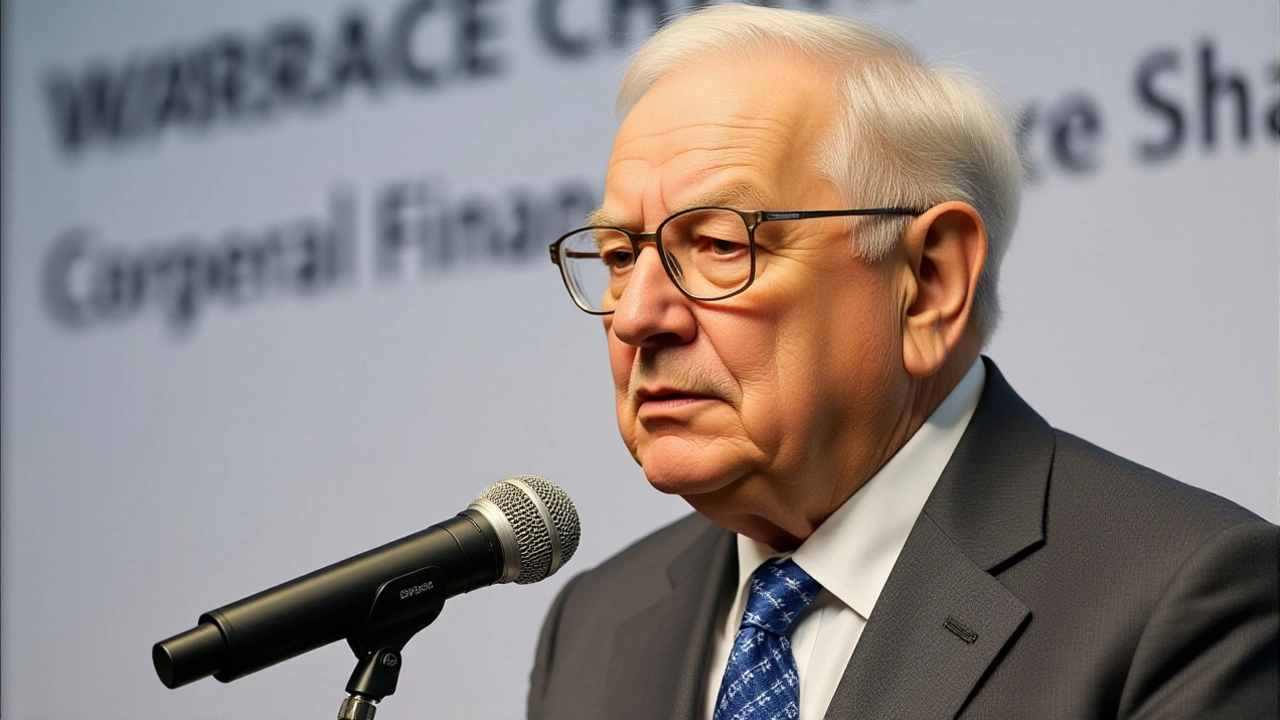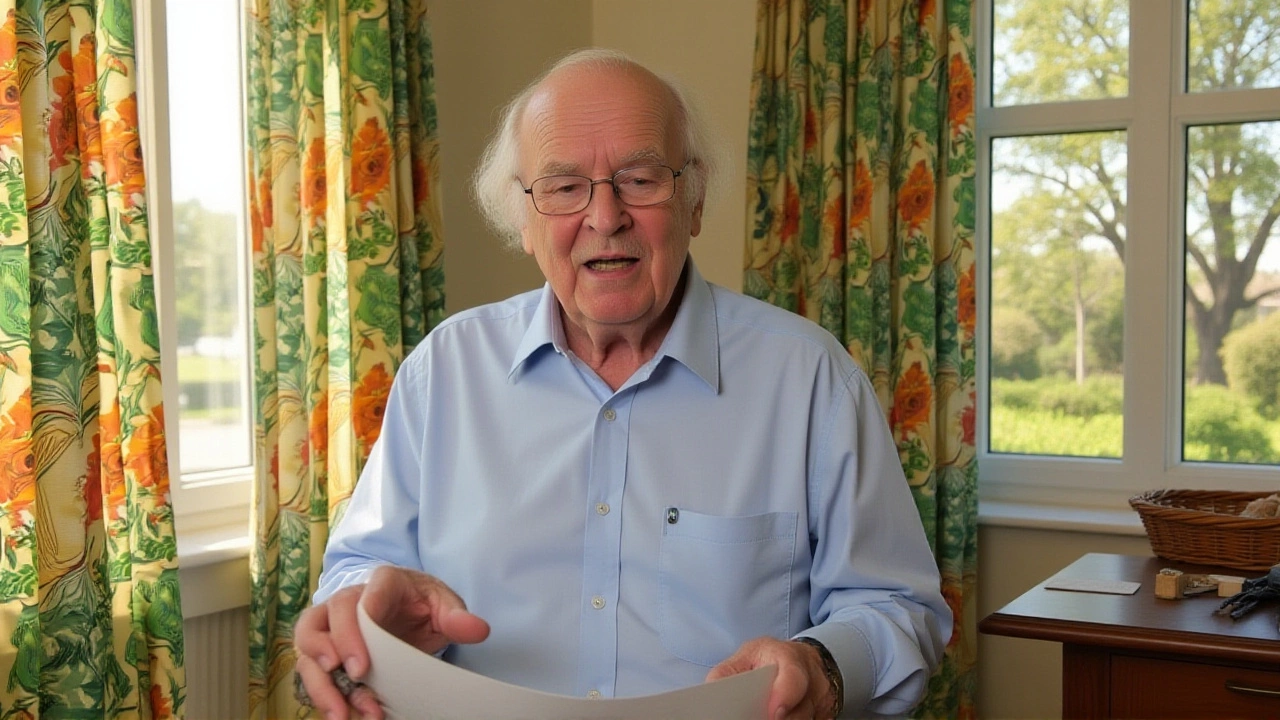Raymond Warren, the British composer and academic whose music bore the weight of history, died on Raymond Warren on June 4, 2025, at 96. His passing, confirmed by the University of Bristol Department of Music and the Arts Council of Northern Ireland, closed a chapter in 20th-century British music—one where symphonies weren’t just heard, but felt. Born November 7, 1928, in Somerset, Warren’s life straddled two worlds: the quiet corridors of academia and the storm of political violence in Northern Ireland, where his compositions became quiet acts of witness.
A Composer Who Listened to Suffering
Warren didn’t just write music about conflict—he absorbed it. His 1962 piece, The Passion, set a modern Gospel text to music that echoed the anguish of ordinary people. It wasn’t grand opera or religious pageantry. It was raw. Intimate. And when sectarian violence erupted in Northern Ireland in the late 1960s, his Second Symphony (1969) didn’t take sides. Instead, it gave voice to grief shared by Catholics and Protestants alike. "It wasn’t propaganda," wrote one former student in a tribute posted online. "It was mourning made audible." The Queen's University Belfast where he served as Head of Music until 1972 became his crucible. As bombs shook the city and streets divided along old lines, Warren kept teaching, kept composing. He didn’t flee. He stayed. And his music became a mirror.From Belfast to Bristol: Building a Musical Family
In 1974, Warren arrived at the University of Bristol as the Stanley Hugh Badock Professor of Music. His inaugural lecture that October wasn’t a dry academic address. He premiered Madrigals in Time of War—a direct continuation of his Belfast work, now filtered through the lens of a quieter, but no less complex, English landscape. What made him extraordinary wasn’t just his compositions. It was how he taught. He didn’t just hand out syllabi. He memorized names. Faces. Backstories. Each September, he’d study the new intake’s files—printed and pinned to his family kitchen wall—and by the time students walked into their first seminar, he’d already greeted them by name, asked about their hometown, remembered their sister’s graduation or their father’s illness. "He made you feel like you belonged before you’d even sat down," recalled Dr. Eleanor Voss, now a professor at the Royal Academy of Music. Under his leadership, the department developed what insiders called a "family feel." He recruited faculty who would go on to shape music education across the UK. He revised outdated curricula, brought contemporary composers into the classroom, and insisted that theory be grounded in human experience. "He didn’t believe in music as a relic," said former student and now-conductor Marcus Bell. "He believed it was alive. And it had to speak to now."
The Quiet Second Act: Composer, Not Professor
Retirement in 1994 wasn’t an end—it was a return. Warren had always said his true calling was composing. After decades of balancing teaching, administration, and creation, he finally had the time. He partnered with the Brunel Ensemble, a group known for championing British modernists. Together, they premiered two works in the 1990s—though their titles remain unconfirmed in public records. One, according to a close friend, was a string quartet titled After the Silence, inspired by the Good Friday Agreement. The other, a choral piece for solo soprano and percussion, was dedicated to the mothers who lost children in The Troubles. The Arts Council of Northern Ireland called him "a pillar of cultural resilience." The University of Bristol described him as "a teacher who taught with his heart." Both were right.Why His Legacy Still Matters
In an era when art is often reduced to trends or hashtags, Warren’s work reminds us that music can be a moral act. He didn’t wait for permission to respond to injustice. He didn’t need a commission. He just wrote. And he wrote for people, not prizes. His legacy lives on not just in recordings or archives, but in the classrooms where teachers still memorize student names. In the way young composers now feel free to write about trauma, migration, or loss without fearing it’s "too political." Warren proved that music doesn’t have to be abstract to be profound. Sometimes, the most powerful notes are the ones that come from listening.
What’s Next for His Music?
The University of Bristol Department of Music has announced plans to digitize Warren’s manuscripts and host a public concert of his works in autumn 2025. A documentary, Notes from the Kitchen Wall, is also in development, featuring interviews with former students, colleagues, and survivors of The Troubles who found solace in his symphonies. No one knows yet if the missing titles of his Brunel Ensemble works will be recovered. But one thing’s certain: the music he left behind won’t be forgotten.Frequently Asked Questions
How did Raymond Warren’s music respond to The Troubles in Northern Ireland?
Warren’s Second Symphony (1969) didn’t depict violence directly, but captured the shared grief of Catholics and Protestants through haunting harmonies and fragmented melodies. His earlier work, The Passion (1962), used modern Gospel texts to evoke suffering in a way that resonated deeply during the early years of The Troubles. He avoided political messaging, instead focusing on human emotion—making his music a quiet, enduring act of solidarity.
Why is there confusion about whether Raymond Warren was born in Somerset or Cambridge?
The University of Bristol lists his birthplace as Somerset, where his family lived at the time of his birth. The Arts Council of Northern Ireland refers to him as "Cambridge-born," likely referencing his early education or family roots tied to the city. This discrepancy is common in historical records, especially when families relocated during childhood. His lifelong connection to the West of England suggests Somerset is more accurate.
What made his teaching style at the University of Bristol unique?
Warren believed pastoral care was as vital as technical training. He memorized personal details about every new music student—often using files pinned to his kitchen wall—to greet them by name on day one. This created an immediate sense of belonging. Students didn’t just learn counterpoint; they felt seen. Many credit this approach with helping them survive the pressures of conservatory life, and it became a model for music departments across the UK.
Did Raymond Warren ever receive major awards for his compositions?
While he never won the most publicized British music prizes, Warren was awarded the Royal Philharmonic Society’s Composition Prize in 1970 for his Second Symphony. He also received an honorary doctorate from Queen’s University Belfast in 1988. His recognition was quieter, more enduring: performances by major ensembles, repeated programming in UK festivals, and deep respect from peers like Harrison Birtwistle and Peter Maxwell Davies, who called him "a composer of moral courage."
What happened to his unpublished works after his death?
The University of Bristol Department of Music has taken custody of his personal archive, including handwritten scores, correspondence with performers, and unpublished sketches. A team of musicologists is currently cataloging his estate, with plans to release a critical edition of his choral works by 2027. Two compositions from the 1990s with the Brunel Ensemble remain untitled but are confirmed to exist in full score.
How is Raymond Warren’s legacy being honored now?
A memorial concert is planned for November 2025 at the University of Bristol’s Wills Memorial Building, featuring performances of The Passion, the Second Symphony, and his later string quartets. The Arts Council of Northern Ireland is funding a youth composition competition named in his honor, encouraging students to create works responding to social division. His kitchen wall—where he studied student files—is being preserved as a symbolic artifact in the university’s music library.

Hi, I'm Deacon Lockhart, a gaming expert with a passion for all things video games. I've spent years honing my skills in various platforms and genres, and now I enjoy sharing my experiences and insights with fellow gamers. As a dedicated writer, I love to create engaging content on game reviews, news, and in-depth analysis. Whether you're a casual player or a hardcore enthusiast, I aim to provide something for everyone in the gaming community. Let's embark on this exciting journey together and explore the incredible world of gaming!